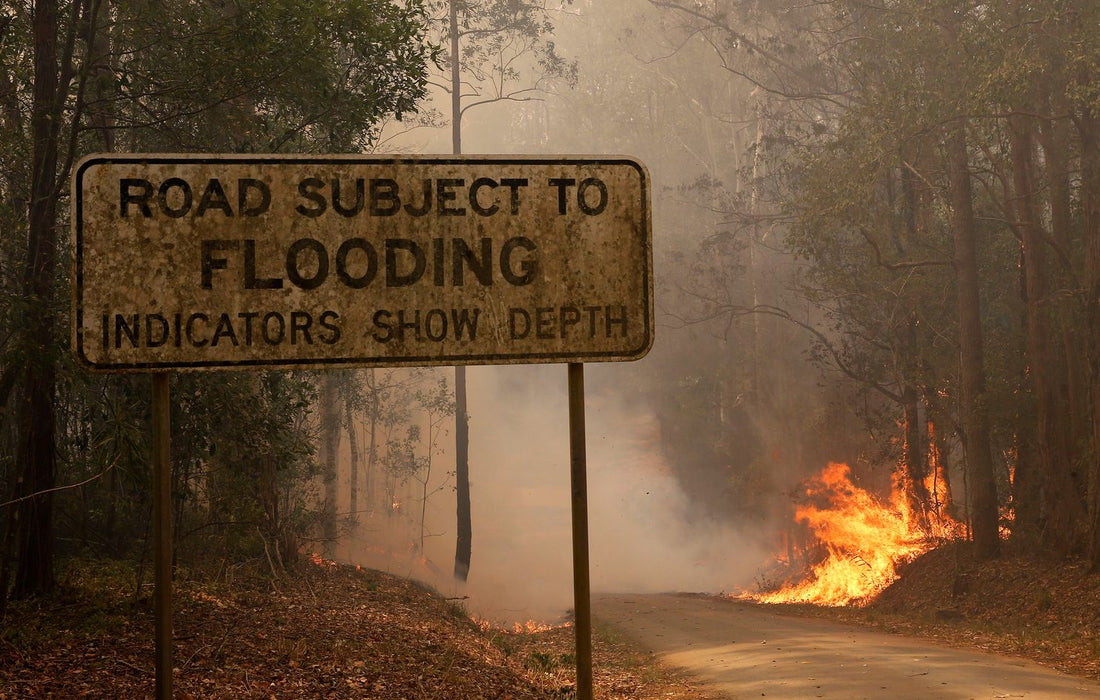
Minorities, Low Socioeconomic Groups Care Most About Climate Change, Survey Says.
Share
TL;DR
- Minorities and low-income communities are most directly affected by manmade changes in Earth's climate, making them more involved in climate action
Since Hurricane Katrina devastated the Gulf Coast in the United States in August 2005 - killing an estimated 1,833 people and displacing millions of others - the consciousness of climate change has grown in the wake of its most affected communities.
Shortly after in 2012, Hurricane Sandy came and went, flooding the East Coast before Hurricane Harvey left more than 30,000 homeless in Texas in 2017. We have known climate change escalates the furious nature of severe weather for some time, and now the science dictates this to be true.

Hurricanes such as Katrina became a focal point of climate change discussion, especially as scientific evidence mounted that global industry was its driving force. The millions of dollars in devastation and tallied deaths drove the voices of minorities in the USA, and studies began to detail the collective consciousness of those affected with overpowering results.
The most affected were those in lower socioeconomic groups.
A study in the Proceedings of the National Academy of Sciences last year found that climate change is spurring the intensity of severe weather patterns and they're only going to get worse.
Within the hurricane damage of all three events within the past two decades in the US, Latino, Hispanic and African-American communities were hit hardest as they were situated in the more affordable areas in the US. These areas happen to be low elevation, coastal areas.
The issue addressed is not simply racial, rather the correlation between low-income and how it translates internationally, regardless of location.
Communities of lower-income are subject to sea-level rise, heat waves, and wildfires directly linked to climate change, according to studies in Geoforum, Climate, and Plos One respectively.
A survey was conducted recently by the George Mason University Centre for Climate Change about how communities in low socioeconomic situations felt about climate change. The findings found that most people, especially those in racial minority groups, were almost twice more concerned about climate change than others.
The numbers indicated that 37% of those in the lower socioeconomic group (and 27% of African Americans surveyed) were "alarmed" by climate change compared to 22% of those in higher-income brackets.
In fact, the number of people in higher income brackets that considered themselves "dismissive" of climate change was double that of those in the lowest income pool.
Those at risk of climate change in the lowest income bracket were more likely to actively engage in activities to lobby for climate action, with 24% doing so compared to 16% in all other groups.

This is not isolated to the US, as similar communities have found themselves at the mercy of irreversible damage within Australia. This can be seen in the aftermath of our worst bushfire season on record at the turn of 2019-2020.
You've come this far, come a little further into ARSE and support Aussie space.
Have a squiz...
Those living away from major Australian metropolitan areas - due to affordability - found themselves in the direct path of bushfires on our South Eastern coastline. This mirrors the factors determining those in low-income households severely affected by Hurricane Katrina in 2005
The damage to these populations is immense, independent of location. The challenge of rebounding from the loss of a home some have spent entire lifetimes to acquire is a steep incline.
For most, they never recover.
The study concluded that those in lower-income households situated in more affordable areas are "... more often exposed and vulnerable to environmental hazards and extreme weather events," researchers wrote in their analysis.
While climate change is invariably going to shape our global future, it has historically impacted the disadvantaged at a much higher rate. It has already killed and displaced millions from the US hurricanes to the landslides in India and bushfires here at home.
Those directly in the firing line have become the biggest advocates for the science behind climate change, despite said income brackets historically having little scientific literacy.
#Space_Aus




